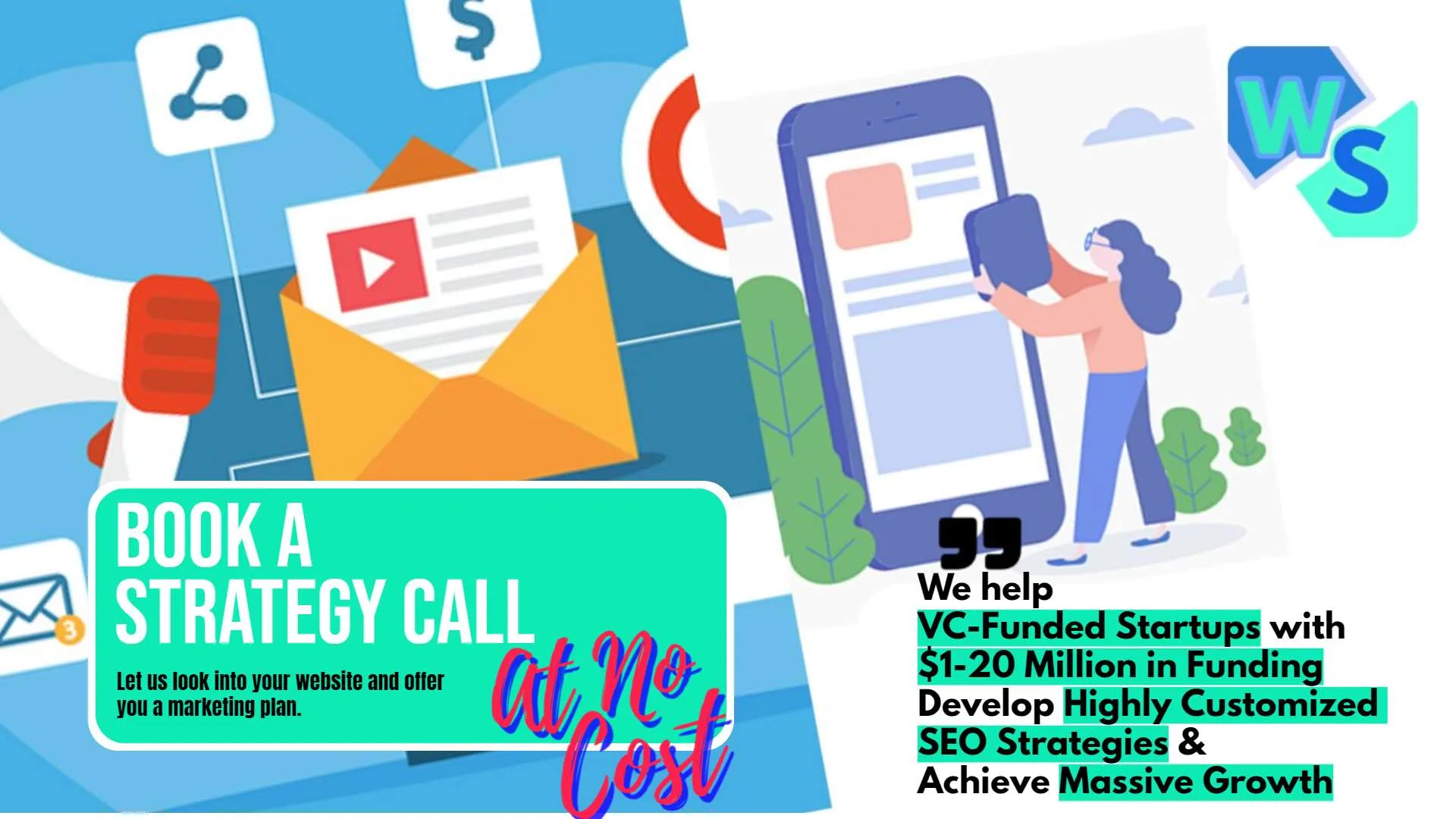This Article has been revised, edited and added to, by Poulomi Chakraborty.
- The Growing Popularity of Podcasts
- Creating a Podcast: Getting Started
- Measuring the Success of Your Podcast
- Setting Key Performance Indicators (KPIs)
- Analyzing Listener Data
- Evaluating Episode Performance
- Gathering Listener Feedback
- Making Data-Driven Adjustments
- Setting Key Performance Indicators (KPIs)
- Utilizing Advanced Analytics Tools
- Segmenting Your Audience
- Tracking Listener Engagement
- Evaluating Content Performance
- Assessing Brand Impact
- Leveraging Listener Feedback for Improvement
- Benchmarking Against Competitors
- Adjusting Your Strategy Based on Insights
- Integrating Podcast Metrics with Overall Business Goals
- Monetizing Your Podcast
- Exploring Sponsorship Opportunities
- Offering Premium Content
- Creating Merchandise
- Leveraging Affiliate Marketing
- Hosting Live Events
- Exploring Sponsorship Opportunities
- Offering Premium Content
- Creating Merchandise
- Leveraging Affiliate Marketing
- Hosting Live Events
- Crowdfunding and Listener Donations
- Licensing and Syndication
- Developing a Comprehensive Monetization Strategy
- Building Long-Term Partnerships
- Continuous Innovation and Adaptation
- Building a Loyal Community
- Engaging with Your Audience
- Encouraging Listener Participation
- Creating a Listener Community
- Offering Value Beyond the Podcast
- Engaging with Your Audience
- Encouraging Listener Participation
- Creating a Listener Community
- Offering Value Beyond the Podcast
- Hosting Exclusive Events
- Recognizing and Rewarding Loyalty
- Fostering a Sense of Belonging
- Leveraging User-Generated Content
- Analyzing Community Metrics
- Adapting to Feedback and Trends
- Successful Podcast Strategies
- The Future of Podcasting in Content Marketing
- Conclusion: Embracing the Power of Podcasts
In the ever-changing world of digital marketing, staying ahead means embracing new trends and technologies. One powerful tool that’s gaining momentum is podcasting. If you haven’t yet explored the potential of podcasts for your content marketing strategy, now is the time. Podcasts offer a unique way to engage with your audience, share valuable insights, and build a loyal following. But how exactly can you harness the power of podcasts for your brand? Let’s dive in and find out.
The Growing Popularity of Podcasts

Podcasts have seen a remarkable rise in popularity over the past few years. More and more people are tuning in to their favorite shows during their daily commute, workout sessions, or even while cooking dinner.
The convenience and accessibility of podcasts make them a perfect medium for busy individuals who want to consume content on the go. According to recent statistics, there are over 2 million active podcasts and more than 48 million podcast episodes available, catering to a wide range of interests and niches.
Why Podcasts?
The allure of podcasts lies in their ability to offer in-depth discussions, expert interviews, and engaging storytelling. Unlike traditional blog posts or social media updates, podcasts allow for a more personal connection with the audience.
Listeners can hear the tone, emotion, and nuances in the speaker’s voice, creating a sense of intimacy and trust. This makes podcasts an excellent platform for building relationships with your audience and establishing your brand as an authority in your industry.
Comparing Podcasts with Other Content Formats
When it comes to content marketing, there are various formats to choose from, including blog posts, videos, social media updates, and infographics. Each format has its own strengths and weaknesses, but podcasts offer a unique set of advantages that set them apart.
Depth and Detail
Podcasts allow for in-depth exploration of topics, offering more detail and nuance than a typical blog post or social media update. In a 30-minute podcast episode, you can cover a topic extensively, providing valuable insights and actionable advice.
This level of depth is hard to achieve with shorter content formats, making podcasts ideal for complex subjects that require thorough explanation.
Engagement and Retention
One of the biggest challenges in content marketing is keeping your audience engaged. With the average attention span decreasing, it’s becoming increasingly difficult to hold your audience’s attention with written content.
Podcasts, on the other hand, have been shown to have higher engagement and retention rates. Listeners often commit to entire episodes, especially if the content is compelling and well-produced. This means your audience is more likely to absorb your message and remember your brand.
Flexibility and Accessibility
Podcasts are incredibly flexible and accessible. Listeners can tune in while doing other activities, such as driving, exercising, or cooking. This makes podcasts a convenient option for busy individuals who might not have the time to read a blog post or watch a video.
Additionally, podcasts are easily accessible through various platforms, including Apple Podcasts, Spotify, and Google Podcasts, making it easy for your audience to find and subscribe to your show.
Personal Connection
One of the key benefits of podcasts is the ability to create a personal connection with your audience. The human voice is a powerful tool for conveying emotion and building trust. When listeners hear your voice, they feel a more personal connection to your brand. This can help to build loyalty and encourage long-term engagement with your audience.
Cost and Production
While producing high-quality video content can be expensive and time-consuming, podcasts are relatively cost-effective and easier to produce. With the right equipment and software, you can start a podcast with minimal investment. This makes podcasts a great option for businesses with limited budgets who still want to produce high-quality content.
A Case for Diversification
While podcasts offer many advantages, it’s important to remember that they should be part of a diversified content strategy. Each content format serves a different purpose and appeals to different segments of your audience. By incorporating podcasts into your overall strategy, you can reach a wider audience and provide a richer content experience.
Making the Decision
When deciding whether to incorporate podcasts into your content marketing strategy, consider your audience, goals, and resources. Are your target audience members likely to listen to podcasts? Do you have the expertise and resources to produce high-quality episodes? If the answer is yes, then podcasts can be a valuable addition to your content marketing toolkit.
Creating a Podcast: Getting Started

If you’re convinced of the benefits of podcasts and are ready to get started, there are a few key steps to take. From planning and production to promotion and analysis, creating a successful podcast involves careful planning and execution.
Planning Your Podcast
Before you hit the record button, it’s crucial to have a clear plan in place. Start by defining the purpose of your podcast. What do you hope to achieve? Are you looking to educate your audience, entertain them, or perhaps both? Knowing your goals will help guide the content and tone of your episodes.
Next, identify your target audience. Who are you trying to reach? Understanding your audience’s interests, needs, and preferences will help you create content that resonates with them. This step is essential in ensuring that your podcast delivers value to your listeners.
Choosing a format for your podcast is another important decision. There are several formats to consider, such as interviews, solo shows, panel discussions, and narrative storytelling. Each format has its strengths, and the best choice depends on your content and audience. For instance, interviews can bring expert insights and diverse perspectives, while solo shows allow you to establish yourself as a thought leader.
Developing Content Ideas
Once you’ve planned the overall structure of your podcast, it’s time to brainstorm content ideas. Start by researching topics that are relevant to your audience and align with your goals. Look at what your competitors are doing, and identify gaps that you can fill with your unique perspective.
Creating a content calendar can help you stay organized and ensure a steady flow of episodes. Plan out your topics in advance, and consider themes or series that can be spread over multiple episodes. This not only keeps your content fresh but also encourages listeners to keep coming back for more.
Naming and Branding Your Podcast
Your podcast’s name and branding play a significant role in attracting listeners. Choose a name that is catchy, memorable, and reflective of your content. It should give potential listeners a clear idea of what your podcast is about.
In addition to a great name, you’ll need compelling cover art. This is often the first thing potential listeners will see, so make it visually appealing and professional. Your cover art should include the podcast name and an image that represents your brand. Consistent branding across your podcast and other content platforms reinforces your brand identity and makes your podcast easily recognizable.
Recording and Editing Your Podcast
With your planning and branding in place, it’s time to record your first episode. Choose a quiet location free from distractions and invest in quality recording equipment. While you don’t need to break the bank, a good microphone and headphones can make a significant difference in sound quality.
Recording software is another essential tool. There are many options available, from free programs like Audacity to more advanced software like Adobe Audition. Choose one that suits your needs and budget.
Once you’ve recorded your episode, the next step is editing. Editing allows you to remove any mistakes, enhance sound quality, and add music or sound effects. This process can be time-consuming, but it’s crucial for producing a polished final product. If you’re not comfortable with editing, consider outsourcing this task to a professional.
Publishing and Distributing Your Podcast
After editing, your podcast is ready to be published. Choose a podcast hosting platform to upload your episodes. Popular options include Libsyn, Podbean, and Anchor. These platforms provide the RSS feed needed to distribute your podcast to various directories like Apple Podcasts, Spotify, and Google Podcasts.
When publishing your episodes, write detailed and engaging show notes. These notes should include a summary of the episode, key takeaways, and any links or resources mentioned. Show notes not only provide value to your listeners but also improve your podcast’s SEO, making it easier for new listeners to find your content.
Promoting Your Podcast
Creating a great podcast is only half the battle; you also need to promote it effectively to build an audience. Start by leveraging your existing channels, such as your website, email newsletter, and social media. Share episodes regularly, and encourage your audience to subscribe and leave reviews.
Collaborating with other podcasters and influencers in your niche can also help broaden your reach. Consider guest appearances on other podcasts or invite guests to your show. These collaborations introduce your podcast to new audiences and add credibility to your brand.
Another effective strategy is repurposing your podcast content. Turn episodes into blog posts, social media snippets, or video highlights. This not only maximizes the value of your content but also reaches different segments of your audience across various platforms.
Measuring the Success of Your Podcast

Setting Key Performance Indicators (KPIs)
To understand the impact of your podcast, it’s important to establish key performance indicators (KPIs) that align with your goals. Common KPIs for podcasts include the number of downloads, listener retention rates, and engagement metrics such as social media shares and comments. By setting clear KPIs, you can track your progress and make data-driven decisions to improve your podcast.
Analyzing Listener Data
Most podcast hosting platforms provide detailed analytics on listener behavior. These insights can help you understand who your listeners are, how they found your podcast, and how they interact with your episodes.
Pay attention to metrics such as listener demographics, geographic locations, and the devices used to access your podcast. This data can inform your content strategy and help you tailor your episodes to better meet the needs of your audience.
Evaluating Episode Performance
In addition to overall listener data, it’s important to evaluate the performance of individual episodes. Look at metrics such as the number of downloads, average listening duration, and drop-off points.
This information can help you identify which topics resonate most with your audience and which ones may need improvement. Use this feedback to refine your content and keep your audience engaged.
Gathering Listener Feedback
Direct feedback from your listeners is invaluable for improving your podcast. Encourage your audience to leave reviews on podcast directories, participate in surveys, or reach out through social media.
Ask for their thoughts on recent episodes, suggestions for future topics, and any other feedback they might have. Listening to your audience shows that you value their opinions and are committed to delivering content that meets their needs.
Making Data-Driven Adjustments
Using the insights gathered from your analytics and listener feedback, make data-driven adjustments to your podcast strategy. This might involve experimenting with different episode formats, adjusting the length of your episodes, or exploring new topics based on listener interests.
Continuously improving your podcast based on real-world data ensures that you stay relevant and continue to grow your audience.
Setting Key Performance Indicators (KPIs)
To effectively measure the success of your podcast, setting clear and specific Key Performance Indicators (KPIs) is essential. KPIs should align with your overall business and marketing objectives. For startup founders, consider KPIs that not only track immediate engagement but also long-term growth and impact on your brand.
Metrics like download numbers, subscriber growth, listener retention rates, and social media engagement can provide valuable insights. However, it’s equally important to measure how your podcast drives traffic to your website, influences lead generation, and contributes to customer conversion rates.
Utilizing Advanced Analytics Tools
Standard podcast hosting platforms offer basic analytics, but for deeper insights, consider integrating advanced analytics tools. Platforms like Chartable, Podtrac, and Podkite provide comprehensive data on listener behavior, demographic information, and listening patterns.
These tools can help you identify trends, understand listener preferences, and track the effectiveness of your promotional efforts. For startup founders, leveraging these advanced tools can provide a strategic advantage by allowing you to refine your content strategy based on detailed, actionable data.
Segmenting Your Audience
Understanding who is listening to your podcast is crucial for tailoring your content and marketing efforts. Use analytics to segment your audience based on various criteria such as age, gender, location, and listening habits. This segmentation allows you to create more targeted and personalized content.
For example, if you notice a significant portion of your audience is located in a specific region, consider creating episodes that address local issues or feature local experts. For startup founders, this strategic approach can enhance listener engagement and loyalty, making your podcast a more effective tool for customer retention.
Tracking Listener Engagement
Listener engagement is a key indicator of your podcast’s success. Beyond downloads and listens, track how your audience interacts with your content. Monitor social media mentions, comments, and shares to gauge listener sentiment and engagement.
Encourage feedback and interaction by asking questions during episodes and promoting listener responses through social media and your website. This active engagement not only boosts your podcast’s visibility but also helps build a community around your brand.
For startup founders, fostering a loyal and engaged audience can translate into brand advocates who help spread the word about your business.
Evaluating Content Performance
Regularly evaluate the performance of your podcast episodes to identify what works and what doesn’t. Look at which episodes receive the most downloads, have the longest listening durations, and generate the most engagement.
Analyze the topics, formats, and guest appearances that resonate most with your audience. Use this data to inform your future content strategy, ensuring that you continue to provide value and keep your audience engaged.
For startup founders, this continuous improvement process is vital for maintaining relevance and growing your audience over time.
Assessing Brand Impact
Beyond immediate metrics, it’s important to assess how your podcast impacts your overall brand. Track how your podcast influences brand awareness, perception, and loyalty.
Conduct surveys or use tools like Net Promoter Score (NPS) to measure listener satisfaction and likelihood to recommend your podcast. Additionally, monitor changes in your website traffic, social media followers, and email subscribers following new podcast episodes.
These indicators can provide a broader perspective on how your podcast contributes to your brand’s growth and reputation.
Leveraging Listener Feedback for Improvement
Listener feedback is a goldmine for continuous improvement. Encourage your audience to provide feedback through surveys, social media, and direct messages. Actively seek out constructive criticism and use it to refine your content and delivery.
For example, if listeners suggest shorter episodes or more guest interviews, consider incorporating these changes. For startup founders, being responsive to listener feedback demonstrates a commitment to delivering value, enhancing your credibility and strengthening your relationship with your audience.
Benchmarking Against Competitors
To gain a competitive edge, benchmark your podcast’s performance against others in your industry. Identify key competitors and analyze their content, engagement metrics, and promotional strategies.
Tools like Podchaser and Listen Notes can help you discover and analyze similar podcasts. Understanding where you stand in the competitive landscape allows you to identify opportunities for differentiation and improvement.
For startup founders, this strategic insight can inform your content strategy, helping you carve out a unique niche and attract a dedicated listener base.
Adjusting Your Strategy Based on Insights
Using the data and insights gathered from your analytics, listener feedback, and competitive benchmarking, make informed adjustments to your podcast strategy. This might involve experimenting with new formats, exploring different promotional channels, or refining your messaging.
Continuously test and iterate to find what works best for your audience and your business goals. For startup founders, this agile approach ensures that your podcast remains relevant, engaging, and aligned with your overall growth strategy.
Integrating Podcast Metrics with Overall Business Goals
To maximize the impact of your podcast, integrate your podcast metrics with your broader business goals. Use the insights from your podcast analytics to inform your marketing, sales, and customer engagement strategies.
For example, if a particular podcast episode drives significant traffic to your website, explore ways to replicate that success across other marketing channels. For startup founders, this holistic approach ensures that your podcast contributes meaningfully to your business objectives, helping you achieve sustainable growth and success.

Monetizing Your Podcast
Exploring Sponsorship Opportunities
One of the most common ways to monetize a podcast is through sponsorships. As your audience grows, you can attract sponsors who are interested in reaching your listeners.
Sponsorship deals typically involve promoting a sponsor’s product or service during your episodes in exchange for payment. To attract sponsors, create a media kit that includes information about your podcast, listener demographics, and engagement metrics.
Offering Premium Content
Another way to generate revenue is by offering premium content to your listeners. This could include bonus episodes, ad-free listening, or early access to new episodes.
Platforms like Patreon make it easy to set up a subscription model where listeners can support your podcast in exchange for exclusive content. This approach not only generates revenue but also deepens the relationship with your most loyal listeners.
Creating Merchandise
Selling merchandise related to your podcast can be a fun and profitable way to engage your audience. Consider creating branded items such as t-shirts, mugs, or stickers that fans can purchase.
Not only does this generate additional revenue, but it also helps to promote your podcast as listeners become walking advertisements for your show.
Leveraging Affiliate Marketing
Affiliate marketing is another effective way to monetize your podcast. By promoting products or services relevant to your audience, you can earn a commission on any sales generated through your referral links.
Choose affiliate partners that align with your brand and provide value to your listeners. Be transparent about your affiliate relationships to maintain trust with your audience.
Hosting Live Events
Hosting live events, such as webinars, workshops, or meet-and-greet sessions, can provide additional revenue streams. These events allow you to connect with your audience in real-time, offer valuable content, and build a sense of community. Charge a fee for attendance or offer paid VIP experiences for an added revenue boost.
Exploring Sponsorship Opportunities
Sponsorship is one of the most lucrative ways to monetize a podcast, but it requires a strategic approach. For startup founders, building relationships with potential sponsors involves demonstrating the value your podcast can offer. Start by identifying brands that align with your audience’s interests and values.
Craft a compelling pitch that highlights your listener demographics, engagement metrics, and the unique benefits of sponsoring your podcast. Tailor each pitch to the specific sponsor, emphasizing how their products or services resonate with your audience.
Remember, successful sponsorships are built on mutual benefit; ensure you offer value to your sponsors through creative ad placements and authentic endorsements.
Offering Premium Content
Creating a tiered content model can provide additional revenue streams while enhancing listener loyalty. For example, offer exclusive bonus episodes, behind-the-scenes content, or early access to new episodes through a subscription-based platform like Patreon.
This approach not only generates income but also fosters a sense of exclusivity and community among your most dedicated listeners. For startup founders, it’s crucial to regularly evaluate the value of your premium content.
Conduct surveys and gather feedback to ensure that your paid offerings meet or exceed subscriber expectations. Continuously innovate and add new benefits to keep your premium subscribers engaged and satisfied.
Creating Merchandise
Branded merchandise is an excellent way to monetize your podcast while promoting your brand. For startup founders, consider merchandise that resonates with your audience and reflects the identity of your podcast.
Items such as t-shirts, mugs, and tote bags can be effective, but think outside the box to offer unique products that stand out. Partner with quality suppliers to ensure your merchandise is durable and appealing.
Promote your merchandise during episodes and through social media, and consider offering limited-edition items to create urgency and excitement. Integrating merchandise sales with listener engagement initiatives, such as contests or giveaways, can further boost interest and sales.
Leveraging Affiliate Marketing
Affiliate marketing offers a way to monetize your podcast without direct sponsorships. For startup founders, the key is to choose affiliate products or services that are highly relevant to your audience.
Begin by selecting reputable affiliate programs and negotiating favorable commission rates. Integrate affiliate promotions naturally within your content, ensuring they align with the topics and interests of your listeners.
Transparency is crucial; always disclose your affiliate relationships to maintain trust. Track the performance of your affiliate links to understand what resonates with your audience and adjust your strategy accordingly to maximize revenue.
Hosting Live Events
Live events can significantly enhance your podcast’s monetization strategy. For startup founders, hosting live webinars, workshops, or even in-person meetups provides multiple revenue opportunities.
Charge for event tickets, offer premium packages for exclusive access, and sell event-related merchandise. Live events also offer the chance to engage with your audience directly, strengthening community ties and fostering brand loyalty.
Promote your events well in advance through your podcast, social media, and email marketing. After the event, consider offering recordings or highlights as additional paid content for those who couldn’t attend.
Crowdfunding and Listener Donations
Crowdfunding can be an effective way to monetize your podcast, especially if you have a dedicated listener base. Platforms like Kickstarter or GoFundMe allow you to raise funds for specific projects, such as producing a new season or upgrading your equipment.
For startup founders, clearly communicating the value and impact of listener contributions is key. Offer attractive rewards for different contribution levels, such as exclusive content, merchandise, or personalized shoutouts.
Regularly update your supporters on your progress and show appreciation for their support to build a strong, supportive community around your podcast.
Licensing and Syndication
Licensing and syndication can open up new revenue streams by allowing other platforms or media outlets to feature your content. For startup founders, this means negotiating agreements where your podcast episodes are distributed to broader audiences through established networks.
This not only increases your reach but also brings in licensing fees. Identify platforms that align with your brand and audience, and approach them with a professional pitch highlighting the value your podcast brings.
Ensure that any licensing agreements protect your intellectual property rights and include provisions for revenue sharing.
Developing a Comprehensive Monetization Strategy
Integrating multiple monetization methods can provide a balanced and sustainable revenue model for your podcast. For startup founders, it’s essential to develop a comprehensive strategy that aligns with your overall business goals.
Consider the strengths and limitations of each monetization method and how they can complement each other. Regularly review your revenue streams and adapt your strategy based on performance data and listener feedback.
Diversifying your income sources not only maximizes revenue but also mitigates risks associated with relying on a single revenue stream.
Building Long-Term Partnerships
Establishing long-term partnerships with sponsors, advertisers, and other stakeholders can provide financial stability and growth opportunities for your podcast. For startup founders, focus on building relationships based on trust and mutual benefit.
Provide consistent value to your partners by delivering on your promises and exceeding expectations. Regularly communicate with your partners, share insights on performance, and seek feedback to improve your offerings.
Long-term partnerships can lead to ongoing sponsorship deals, co-branded content, and collaborative marketing efforts that enhance both your podcast and your partners’ brands.
Continuous Innovation and Adaptation
The podcasting landscape is constantly evolving, and staying ahead requires continuous innovation and adaptation. For startup founders, this means being open to experimenting with new monetization methods and staying informed about industry trends.
Regularly engage with your audience to understand their evolving preferences and needs. Innovate your content, explore new platforms, and be willing to pivot your strategy based on what works best for your audience and business goals.
By remaining agile and responsive, you can ensure that your podcast remains a valuable and profitable component of your content marketing strategy.
Building a Loyal Community

Engaging with Your Audience
Building a loyal community around your podcast involves more than just creating great content. Engage with your audience through social media, email newsletters, and listener forums. Respond to comments, answer questions, and participate in discussions. Show your listeners that you value their input and are genuinely interested in building a relationship with them.
Encouraging Listener Participation
Encourage your listeners to participate in your podcast by inviting them to submit questions, suggest topics, or share their stories. Featuring listener contributions in your episodes creates a sense of involvement and fosters a stronger connection with your audience. Consider running contests or giveaways to incentivize participation and keep your audience engaged.
Creating a Listener Community
Create a dedicated space for your listeners to connect with each other and with you. This could be a private Facebook group, a Discord server, or a forum on your website.
Foster a positive and supportive environment where listeners can share their thoughts, ask questions, and build relationships. A strong community not only enhances the listener experience but also helps to promote your podcast through word-of-mouth.
Offering Value Beyond the Podcast
Provide value to your audience beyond your podcast episodes. Share additional resources, such as blog posts, e-books, or exclusive content, that complement your podcast topics.
Offer discounts or special offers from your sponsors or partners. By continually providing value, you reinforce your position as a trusted resource and keep your audience coming back for more.
Engaging with Your Audience
Engaging with your audience is a critical aspect of building a loyal community around your podcast. For startup founders, it’s essential to create a two-way communication channel where listeners feel valued and heard.
Start by actively responding to comments and messages on social media, and make it a point to mention listener feedback and questions during your episodes. This not only shows that you’re listening but also encourages more interaction.
Additionally, consider hosting live Q&A sessions or webinars where you can engage with your audience in real-time. This personal touch can significantly enhance listener loyalty and foster a sense of community.
Encouraging Listener Participation
Inviting your audience to participate in your podcast can create a deeper connection and a sense of ownership among your listeners. For startup founders, this can be achieved by encouraging listeners to submit questions, suggest topics, or share their stories.
Featuring listener contributions in your episodes makes them feel part of the show and can lead to increased engagement and loyalty. Consider running themed episodes based on listener suggestions or creating segments where you address audience questions and feedback.
This participatory approach not only enriches your content but also strengthens the bond between you and your listeners.
Creating a Listener Community
Building a dedicated space for your listeners to interact with each other and with you can significantly enhance community loyalty. For startup founders, creating a private Facebook group, a Discord server, or a forum on your website can provide this dedicated space.
Encourage discussions, share exclusive content, and host virtual meetups to keep the community active and engaged. Moderation is key to maintaining a positive and supportive environment.
Appoint moderators if necessary and establish clear guidelines to ensure respectful and constructive interactions. A vibrant listener community can become a powerful asset, amplifying your reach through word-of-mouth and creating a loyal base of brand advocates.
Offering Value Beyond the Podcast
Providing value to your audience beyond your regular episodes can strengthen community ties and enhance listener loyalty. For startup founders, consider offering additional resources such as blog posts, e-books, webinars, or exclusive content that complements your podcast topics.
Sharing industry insights, tips, and tools can position you as a valuable resource and thought leader in your field. Additionally, offering special discounts or early access to products and services can further incentivize loyalty.
By continuously providing value, you reinforce your commitment to your audience’s success and build a deeper, more enduring relationship.
Hosting Exclusive Events
Exclusive events, whether virtual or in-person, can create memorable experiences that foster community loyalty. For startup founders, consider hosting events such as live podcast recordings, workshops, or meet-and-greet sessions.
These events provide an opportunity to interact with your audience on a more personal level and create a sense of exclusivity and belonging. Promote these events through your podcast and social media channels, and offer early access or special perks to your most loyal listeners.
Capturing and sharing highlights from these events can also generate excitement and encourage broader participation.
Recognizing and Rewarding Loyalty
Recognizing and rewarding your most loyal listeners can go a long way in building a strong community. For startup founders, implementing a loyalty program or recognition system can show appreciation for your dedicated audience.
Highlight top contributors, share listener success stories, and offer special shout-outs during your episodes. Consider creating a rewards system where listeners can earn points for engaging with your content, which can be redeemed for exclusive merchandise, content, or experiences.
This not only incentivizes engagement but also makes your listeners feel valued and appreciated.
Fostering a Sense of Belonging
Creating a sense of belonging is essential for building a loyal community. For startup founders, this involves crafting a narrative and brand identity that resonates with your audience.
Share your journey, challenges, and successes with your listeners, and encourage them to share theirs. Create a sense of shared purpose and values that align with your audience’s interests and aspirations.
This emotional connection can foster a strong sense of community and loyalty, as listeners feel they are part of something larger than themselves.
Leveraging User-Generated Content
User-generated content (UGC) can be a powerful tool for building community loyalty. For startup founders, encouraging listeners to create and share content related to your podcast can enhance engagement and foster a sense of ownership.
This can include reviews, social media posts, fan art, or even guest contributions to your episodes. Featuring UGC in your podcast or on your social media channels not only provides fresh content but also strengthens the bond between you and your audience.
Highlighting and celebrating your listeners’ creativity and contributions can make them feel valued and more connected to your brand.
Analyzing Community Metrics
To effectively build and maintain a loyal community, it’s important to track and analyze community metrics. For startup founders, metrics such as engagement rates, participation levels, and feedback sentiment can provide valuable insights into the health of your community.
Use this data to identify trends, understand your audience’s preferences, and make informed decisions about your content and community initiatives. Regularly reviewing and acting on community metrics ensures that you stay responsive to your audience’s needs and continue to provide value, fostering long-term loyalty.
Adapting to Feedback and Trends
The needs and preferences of your audience will evolve over time, and it’s crucial to stay adaptable. For startup founders, continuously seeking and acting on feedback is essential for maintaining a loyal community. Stay abreast of industry trends and be willing to experiment with new formats, topics, and engagement strategies.
Regularly solicit feedback through surveys, social media polls, and direct interactions, and use this feedback to refine your approach. Demonstrating that you are responsive and adaptable to your audience’s evolving needs can build trust and reinforce loyalty.
Successful Podcast Strategies

The Power of Niche Content
One of the most successful podcast strategies involves focusing on a specific niche. For example, the podcast “How I Built This” by NPR has gained a massive following by featuring interviews with entrepreneurs and business leaders who share their stories of success and failure.
By targeting a specific audience interested in entrepreneurship, the podcast has built a loyal community and attracted high-profile sponsors.
Leveraging Cross-Promotion
Another effective strategy is leveraging cross-promotion with other podcasts and influencers. “The Joe Rogan Experience” is a prime example of this approach. Joe Rogan frequently features guests from various fields, including comedians, scientists, and athletes.
These guests often promote their appearance on the show to their own followers, introducing the podcast to new audiences and expanding its reach.
Engaging Storytelling
Engaging storytelling is a hallmark of successful podcasts. “Serial,” produced by Sarah Koenig and Julie Snyder, revolutionized the podcasting world with its serialized storytelling format.
Each season tells a compelling, real-life story over multiple episodes, keeping listeners hooked and eagerly awaiting the next installment. The success of “Serial” highlights the power of storytelling in building a dedicated listener base.
Community Building
Creating a strong community around your podcast can lead to sustained success. “The Last Podcast on the Left” has cultivated a passionate fanbase by engaging with listeners through live shows, social media interactions, and a dedicated fan forum.
The hosts’ active involvement with their audience has fostered a sense of belonging and loyalty, driving continued growth and engagement.
Lessons Learned
These examples illustrate several key lessons for podcast success. Focusing on a niche audience allows you to create highly targeted content that resonates with listeners. Leveraging cross-promotion expands your reach and attracts new audiences. Engaging storytelling keeps listeners coming back for more, and building a strong community fosters loyalty and long-term engagement.
The Future of Podcasting in Content Marketing
The Rise of Podcast Advertising
Podcast advertising is on the rise, and it shows no signs of slowing down. With the increasing popularity of podcasts, advertisers are recognizing the value of this medium for reaching engaged audiences.
According to industry reports, podcast ad revenue is projected to surpass $2 billion in the next few years. This growth is fueled by the high level of trust listeners have in podcast hosts, who often deliver ads in a conversational and relatable manner.
Innovations in Podcast Technology
Advancements in technology are making it easier than ever to create and distribute podcasts. From user-friendly recording software to sophisticated editing tools, podcasters have access to a wide range of resources to enhance their production quality.
Additionally, artificial intelligence and machine learning are being integrated into podcasting platforms to provide better recommendations, improve discoverability, and even assist with content creation and editing.
Interactive and Immersive Experiences
The future of podcasting is likely to include more interactive and immersive experiences. As technology continues to evolve, we can expect to see innovations such as virtual reality (VR) and augmented reality (AR) being incorporated into podcasts.
These technologies have the potential to create more engaging and immersive listening experiences, allowing audiences to interact with content in new and exciting ways.
Expanding Global Reach
Podcasts are breaking down geographical barriers and reaching audiences around the world. As internet access and smartphone usage continue to grow globally, podcasts are becoming more accessible to people in different regions.
This presents a unique opportunity for podcasters to expand their reach and connect with diverse audiences. Multilingual podcasts and culturally relevant content can help tap into new markets and foster a global community of listeners.
Personalized Content
Personalization is becoming increasingly important in content marketing, and podcasts are no exception. As data analytics and AI technologies advance, podcasters can deliver more personalized content to their listeners.
Personalized recommendations, customized playlists, and tailored ads can enhance the listener experience and increase engagement. By understanding the preferences and behaviors of their audience, podcasters can create content that resonates on a deeper level.
Sustainability and Ethics
As the podcasting industry grows, so does the need for sustainable and ethical practices. Podcasters are becoming more conscious of their environmental impact and are exploring ways to reduce their carbon footprint.
Additionally, ethical considerations such as diversity, inclusivity, and responsible advertising are becoming more prominent. Podcasters who prioritize these values are likely to build stronger connections with their audience and contribute positively to the industry.
Conclusion: Embracing the Power of Podcasts
Podcasting is a powerful tool in the content marketing arsenal, offering a unique way to engage with audiences, build trust, and deliver valuable content. By harnessing the power of podcasts, brands can create deeper connections with their audience, reach new markets, and stay ahead of the competition.
Starting a podcast may seem daunting, but with careful planning, quality production, and effective promotion, it can be a highly rewarding endeavor. From choosing the right format and developing engaging content to measuring success and exploring monetization opportunities, every step of the podcasting journey offers the potential for growth and impact.
As the podcasting landscape continues to evolve, staying informed about emerging trends and technologies will be crucial. Embrace the opportunities that podcasting presents, and integrate it into your broader content marketing strategy to maximize its potential. Whether you’re looking to educate, entertain, or inspire, podcasts provide a dynamic and versatile platform to achieve your goals.
Read Next
- Harnessing the Power of Social Media in Affiliate Marketing
- Affiliate Marketing for Digital Products: Strategies for Success
- Branding in the Age of AI and Automation: Adapting to the Future of Consumer Interactions
- Branding for the Tech Industry: Building Trust in a Rapidly Evolving Landscape
- Branding in the Age of Sustainability: Aligning Brand Values with Social Responsibility






















Comments are closed.